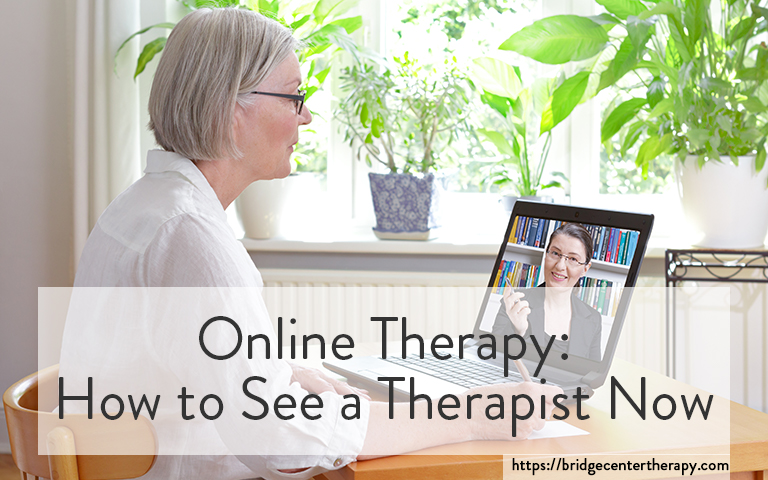The Virtual Couch: Exploring the Power of Online Therapy
As the world becomes increasingly interconnected through the digital realm, it's no surprise that technology has made its way into the world of therapy. Online therapy, also known as e-therapy or teletherapy, is gaining momentum as a convenient and accessible way for individuals to seek mental health support. With just a click of a button, the virtual couch provides a safe space for people to connect with licensed therapists, regardless of their physical location.
One of the key advantages of online therapy is its flexibility. Whether you're a busy professional juggling work and family responsibilities, or you live in a remote area with limited access to mental health services, online therapy offers a solution. Gone are the days of commuting to appointments or trying to squeeze in therapy sessions between tight schedules. With the power of technology, therapy is now just a phone or video call away.
Benefits of Online Therapy
-
Convenience and Accessibility: Online therapy offers the convenience of receiving therapeutic support from the comfort of your own home or any location with internet access. This eliminates the need for commuting and allows individuals to fit therapy sessions into their busy schedules. Additionally, online therapy breaks down geographical barriers, making it accessible to individuals who may not have local access to mental health services.
-
Enhanced Privacy and Anonymity: For some individuals, the fear of being seen entering a therapist's office or the stigma associated with seeking mental health support in their community can be a barrier to seeking help. Online therapy provides a level of privacy and anonymity that can make it easier for people to open up and share their thoughts and feelings without the fear of judgment.

-
Increased Options and Flexible Approach: Online therapy opens up a wider range of therapists and specialists for individuals to choose from. This means that you can have access to professionals who specialize in your specific needs or preferences, even if they are located in a different city or country. Online therapy also offers various communication options such as video calls, voice calls, or instant messaging, providing flexibility to choose the mode of communication that suits you best.
Common Misconceptions about Online Therapy
-
Online therapy is not as effective as in-person therapy: One common misconception about online therapy is that it is less effective than traditional in-person therapy. However, research has repeatedly shown that online therapy can be just as effective as face-to-face therapy, if not more so. Numerous studies have demonstrated that online therapy is a viable and valuable option for individuals seeking mental health support.
-
Online therapists are not as qualified or trustworthy as in-person therapists: Another misconception is that online therapists may not be as qualified or trustworthy as their in-person counterparts. However, betterhelp scandal to note that licensed online therapists undergo the same rigorous training and certification processes as traditional therapists. Reputable online therapy platforms carefully vet their therapists to ensure they meet the highest standards of professionalism and expertise.
-
Online therapy lacks personal connection and rapport: Some people believe that the virtual nature of online therapy makes it difficult to establish a genuine connection or rapport with the therapist. While it may be different from in-person interactions, online therapists are skilled at creating a safe and supportive virtual environment that fosters connection and trust. Through video calls, secure messaging platforms, and other tools, therapists can build strong therapeutic relationships with their clients.
Overall, it is important to challenge these misconceptions and recognize the growing body of evidence supporting the efficacy and benefits of online therapy. As technology continues to advance, online therapy offers a convenient, accessible, and effective way for individuals to prioritize their mental well-being.
Choosing the Right Online Therapy Platform
When it comes to online therapy, finding the right platform is crucial for a successful experience. With so many options available, it's essential to consider a few key factors before making your decision.
-
User-Friendly Interface: Look for an online therapy platform that offers a user-friendly interface. It should be intuitive and easy to navigate, ensuring that both therapists and clients can seamlessly connect and interact. A well-designed platform can enhance the overall therapy experience and create a sense of comfort for users.
-
Secure and Confidential: Prioritize platforms that prioritize security and confidentiality. Ensure that the chosen platform implements proper encryption measures to protect sensitive health information. Look for platforms that comply with industry standards, such as HIPAA, to maximize privacy and maintain the confidentiality of therapy sessions.
-
Diverse Communication Options: Consider an online therapy platform that offers diverse communication options. Different individuals have varying preferences when it comes to communication styles. Some may prefer video calls, while others may prefer text-based chats. Having multiple options allows therapists and clients to choose the method that best suits their needs, enhancing the overall therapeutic experience.
By keeping these key factors in mind, you can ensure that you select the right online therapy platform for your needs. Finding a platform that offers a seamless and secure experience, while also catering to diverse communication preferences, can significantly enhance the effectiveness of online therapy sessions.